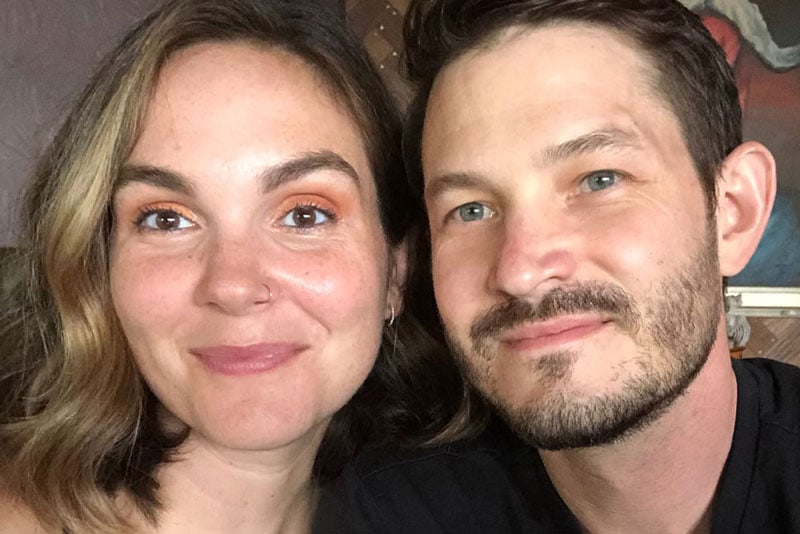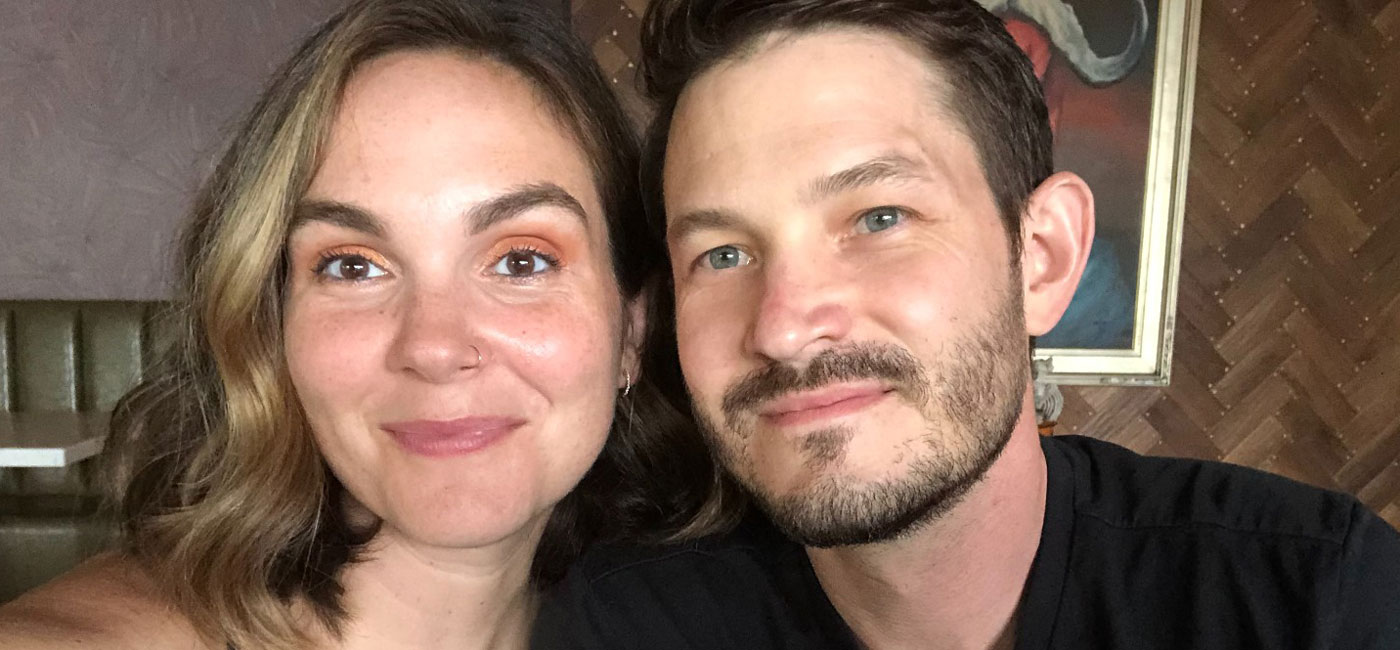Finding Strength in the Unexpected Challenges of Caregiving
A cancer diagnosis changes everything in an instant, affecting not only the person diagnosed but also the loved ones who stand beside them.
“There's never a good time to get the news, but for us, it felt like the worst timing,” said Cassie Wood, wife, mom and caregiver.
Wood’s journey as a caregiver began in 2019 when her husband was diagnosed with stage 3 brain cancer while they were expecting their second child.
From expectant parents to navigating a cancer journey, Cassie Wood’s family found strength in each other.
With no family nearby and two small children to care for, they had to quickly adapt to a new reality.
At first, the weight of the unknown felt unbearable. There was no roadmap for the fear, the difficult decisions or the responsibilities that came all at once. But slowly, through each challenge, Wood found that even in the most uncertain moments, a way forward always emerged with one step, one decision, one act of love at a time.
“Caregiving brings many emotional and logistical challenges to your life. It’s important to give yourself grace and recognize that there is no ‘perfect’ way to handle this role,” Wood said.
Through nearly six years of caregiving, she has learned many lessons about resilience, patience and the power of support. Along the way, she discovered what truly made a difference in her life.
Find Your Support System
If you don’t have family nearby, rely on friends, neighbors or support groups. Even if it feels difficult to reach out, connecting with others who understand your situation can make a significant difference.
Advocate for Your Loved One
For Wood, cognitive changes due to brain cancer meant that she had to step in to make medical decisions for her husband. Being informed about treatment options and voicing concerns during appointments can ensure that your loved one gets the best possible care.
Practice Empathy and Active Listening
“You never really know what someone is going through,” Wood said. “I’ve learned to just listen and validate others because everyone handles life differently.”
Offering compassion in moments of vulnerability helps create a supportive environment where people feel seen, respected and less alone in their struggles.
Understand the Impact on Family Dynamics
Being a spouse and a caregiver at the same time means adjusting to new routines and responsibilities. Embracing these changes with understanding and care helps maintain balance and connection within the family.
Seek Programs and Resources
Initially, Wood did not access many of the support resources available, partly due to the overwhelming nature of the situation. However, over time, programs offered by the Patient and Family Advisory Program at Moffitt Cancer Center became powerful outlets for sharing experiences and finding support.
Make Space for Yourself
“Caregiving isn’t just about managing treatments. It’s about navigating emotions, advocating for your loved one and still trying to take care of yourself,” Wood mentioned.
The caregiving role can feel all-consuming, but it’s essential to carve out time for your own well-being. Self-care, whether through counseling, hobbies or alone time, is essential for being able to care for others.
Recognize That It’s OK to Have Mixed Emotions
“Caregiving doesn’t get easier, but over time, you learn to handle the ups and downs a little better,” Wood added.
There will be good days and bad days, and it’s okay to acknowledge both. Processing emotions instead of suppressing them can help in finding balance.
Caregiving is a deeply personal journey that is different for everyone. Wood’s life changed in an instant six years ago. Today, she faces each day with strength, knowing that love and support will always help her move forward.





